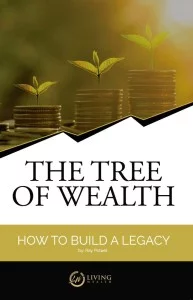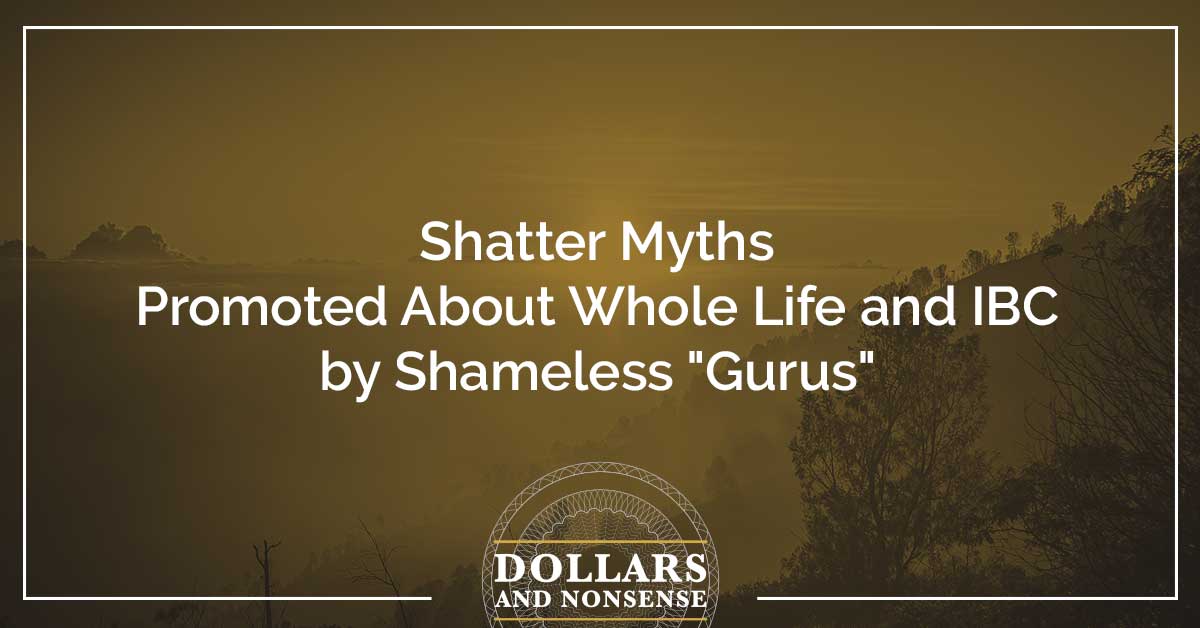In this episode, we discuss the biggest pension myths, and how you can make the best decision for you and your family.
To start, one of the most significant points to focus on in your pension is who to insure. People often ask the questions, “Do you just insure the individual who qualifies for the pension plan? Or if you’re married, do you also include your spouse? And what are the pros or cons to including a spouse in regards to the pension plan?”
You go, you work your whole life, you retire, and then they give you an option. It’s to choose to get the monthly income just on you, or for you and your spouse. Of course, we’re all concerned about the well-being of our spouses. When you first see the number, you say, “Here’s the monthly amount of money I can receive from a pension with just me. And if I add my spouse, wow, that’s a massive reduction.” So it causes people some stress when they see the monthly reduction of money per month if they add their spouse to it.
And there’s so much more. Which, we’ll cover in this episode to help you maximize your pension.
Pension Myths and Maximization Topics Discussed:
- Who to insure in your pension plan
- Ensuring your spouse is provided for
- Leveraging a dividend paying whole life insurance policy correctly
- Where social security fits in, or doesn’t
- Can you count on your pension to be there when you retire
- How to maximize your pension
Want Financial Freedom?

Start your journey to financial freedom with this first step.
Get our 122 page eBook The Tree of Wealth here now.
Pension Mythis Episode Takeaways:
Podcast transcript for episode 21: How to Make the Best Decisions
Nate: In this episode, we will discuss the biggest miss surrounding pensions, and how you can make the best decision for you and your family regarding your pension.
She’s Holly and she helps people find financial freedom.
Holly: He’s Nate. He makes sense out of money. This is Dollars and Nonsense. If you follow the herd, you will be slaughtered.
I think one of the biggest points in regards to pensions is the decision of, “Do you just insure the individual who qualifies for the pension plan? Or if you’re married, do you also include your spouse? And what are the pros or cons to including a spouse in regards to the pension plan?”
Nate: Yeah, that’s definitely one of the biggest questions surrounding pensions right now is … You know, you go, you work your whole life, you retire, and then they give you this option whether to choose to get the monthly income just on you, or on you and your spouse. Of course, we’re all concerned about the well- being of our spouses. When you first see the number, you see, “Here’s the monthly amount of money I can receive from a pension with just me. And if I add my spouse, wow, that’s a huge reduction.” And so it causes people some stress when they see how much money per month will be reduced if they add their spouse to it.
So Holly, you and I wanted to go in and hopefully shed some light on ways that you can maximize your pension. So that’ll be, as we’re talking about right now, talk about some of the issues with pension programs themselves. So securing yourself in other ways and also what just making sure that your wealth doesn’t die when you die on top of that. And maybe I’ll even bring in some social security implications as well because not everybody has a pension, but everybody does have social security, which is really kind of like a pension. So we might even want to add that to it. It’s kind of a similar style.
So Holly, here we are, and we do banking for the most part, and we use specific life insurance policies to become our own banker. How can that play out and complement somebody who may have a pension, and they’re coming up to their retirement date, how can having the policy complement in more ways than just the policy would by itself, which we have many podcasts discussing those, but just purely as it relates to what I’m about to do now that I’m retiring and getting my pension?
Holly: Well I think the first part is the fact that as a married couple, you feel obligated to make sure that your spouse is provided for. And so one of the solutions is to take that bigger number for yourself, but to use the money and be able to actually start a life insurance policy on your spouse. Your spouse will actually have residual income, and we talk about that a lot, in regards to not a magic number, but how do you create wealth and keep it within your family. And really the way to do that is to look at the pension plan and also what can you add to that pension plan. And I’m going to advocate for a dividend paying whole life insurance policy that’s designed the correct way, to also give your spouse protection and to provide income for her as well.
Nate: And I’m even thinking on regards of a course, we desperately want everybody to have a policy on them, multiple policies on them. But even the fact that … One of the main reasons for having the policy is the cash value, of course. But you also get a death benefit. And if I’m sitting here and I just turned 65 and I don’t have a policy really started, I may have some savings elsewhere but regardless, if I don’t have the policy, we know Holly, you and I know that the death benefit is always going to be greater than the cash value. And most of the time, a lot greater until you get very, very old in life.
Knowing what we know, if I had a pension come due and I’m looking at it, I’m saying, “Well, if I was to die the day after, have a heart attack and something happens to me and I die the day after I start claiming the pension, and I just choose it myself, I really don’t think that my wife, in my case, would be able to care for herself just with the savings portion.” I’m just playing hypothetically, but what we can free up, if I have a couple banking policies on me is think how much death benefit I have. If I was to die the day after regardless if she gets the pension or not, she’s going to be set just because of the immense amount of life insurance I have because I’ve been building these banking policies to help me create wealth. So much greater than even what I’ve built in cash values.
So that frees me up in my mind to say, “Hey I can actually go take the pension option that gives me the highest income just based on my life, because I know that no matter when I die, my wife will actually be taken care of because of the death benefits so she can go create her own pension if you will.” In other words, she can start pulling lifetime income, tax-free, just from the millions of dollars I’d leave her in the death benefits. And that essentially is an added benefit that most people don’t even understand especially if you’re in the pension world, which is hey it frees you up to make choices that can improve the value beyond just what you’re getting inside the policy growth itself.
Holly: And Nate, one of the keys there is that with that life insurance policy, when you have it on the one that is the pension and primary bread earner per se in the family and you have the pension plan, and then you actually start additional policies for your loved one. Once you graduate from this earth and you die, you know your wife can still afford her life insurance policy, or your husband, because you’ve actually designed a policy that that wealth transfer, the death benefit, will actually enable her to still have her policy. And possibly, create additional policies for your children and grandchildren irregardless of the fact that you die. But if you’d only put the money in the pension and you only did that, you can’t leave a legacy for your family. And you actually won’t necessarily have left your wife better off, or your spouse. You might have left your wife or husband in a position where they can’t live on the savings of that pension. And they don’t have residual income and they’re trying to struggle with, “What do I do next and how do I make ends meet?”
And so, you have to start thinking about this now when you’re starting those pension plans, as well as not waiting until you’re later on in life. Even if you’re 65, people tell me all the time, a client yesterday, “I’m 64 years old. Should I really start a policy on me, or one of my children?” And I was like, “No, you can still be insured.” There’s this myth that if you’re older, you can’t be insured, and that you shouldn’t buy a policy. And there are some companies that don’t want to insure older individuals. But the reality is, the money lies right now in this baby boomer generation. And because it’s in that baby boomer generation, and this retirement. I mean statistically, you have 10,000 people retiring a day statistically. So as you see that retirement, where is the money? Well if it’s in pension programs, you need to make those choices to opt for that higher amount just so you can create residual income for your family and yourself. Because even if you don’t die tomorrow, eventually we’re all going to die. And so you want to have a backup plan, and I wouldn’t even call it a backup plan, I would just say you’re maximizing your opportunities by creating wealth for you and your family.
Nate: Yeah and one of the best ways to do that is through that policy, exactly. That’s exactly what you said, is just making sure you can take care of your wife, in may case, I’m speaking from the male perspective, and you want to make sure they’re taken of as well as yourself. And the best way to do that is through a policy and it maximizes the benefits you guys can receive in life.
But on top of just what we can do … I guess I’ll bring in real quick before we skip to the next section of the program, is mainly how social security works. So more and more, it’s becoming a reality that pension programs are going out of existence. Not many of us have one, I don’t and I know you don’t. We do all have, at least for the time being, this thing called social security, which really acts just like a pension would. And some people, they bring in social security income into their planning. They say, “Okay, well if I get this much in social security, we can live … You know I have these funds elsewhere, I can live pretty well.” The problem is that with social security, many people have income coming in on themselves, and a spousal income, you get half of what you have on your spouse. Or if you guys both worked, then you both get one. The problem is, is that your spouse doesn’t get to keep both shares of income when you die. And that can become a big problem. You would have expected to be living off X amount and then whenever your spouse dies, bills still need to get paid. And income has just dropped. How can we replace that income that just dropped?
Well you need to have a life insurance policy hopefully, that you’ve been building for many years that has a lot of cash value as well, that we do all these other things, but just more the conventional side. You need to have one so that when you die, when either spouse dies, there’s this big windfall coming in that can make up for the dropped income. Just like we were talking about for the pension being able to replace that income, well social security income may need to be replaced. And so you can do that with a policy in the same manner.
Before I move on, any points on that Holly? I’m sorry.
Holly: Well one of the points on the social security too is that it’s constantly changing and who knows how long honestly, it’s going to be around for. But the reality is, is that when you are drawing money from pensions and stuff and retirement programs, it also can reduce what you receive in regards to social security. So that can play a factor on it. But the other thing it can do is as well is, with a life insurance policy, what you’re borrowing out or using as cash value, doesn’t affect what the social security is that’s coming to you. So the reason you also want a policy is because it doesn’t hinder the amount of social security you’re going to receive because you have other benefits. It actually helps you to receive the maximum amount you can receive for the work that you’ve done and the money you’ve put into the social security program.
Nate: Right because social security starts getting taxed once you start making a certain income. And many times that income’s not very high. I think it’s like $35,000 or $30,000, I can’t remember. Very low amount of income that you can receive elsewhere from things like pensions or retirement programs. And they start taxing your social security income.
Holly: Exactly.
Nate: And so exactly right. You want to get tax-free income that’s non-reported that you can utilize and it won’t mess with social security. And that’s actually one of the things, I think, we’ll segway in to. But before we do, let’s go ahead and get a quick message from our sponsor, Living Wealth.
Holly: Are you tired of being stressed about money. The Dollars and Nonsense podcast is sponsored by Living Wealth. Visit Livingwealth.com/Freedom to get your free smart money e-book and sign up for our personal wealth presentation today. Living Wealth is a family owned and operated business, which works with individuals, families, and even businesses to slay the money stress dragon. Our clients receive individual coaching regarding wealth creation and how to create a retirement income. You’ll be enabled to have cash today and in the future.
Since 1972, Living Wealth has been committed to educated smart people on basic money principles to assist them in becoming debt free and finally find financial freedom. Let us help set you free. Remember to visit Livingwealth.com/Freedom to receive your free e-book and even sign up for an individual wealth presentation today.
Nate: If you like the work we do here, be sure to tell others what you think. Leave us a review on iTunes. You can go to Livingwealth.com/iTunes to get to the show quickly.
Holly: Once on iTunes, click on the Ratings and Review. Then click the button that says, “Write a Review.” Just a few nice words and a five star review is all we ask.
Nate: Alright, so Holly before the break, we were going to segway into something new here and that’s the fact. And you had mentioned it Holly when you talked about social security. You said, “It’s always changing and who knows if it’s going to be around.” Well the problem is that’s not only the case with social security, that’s also the case with pension programs, they’re going bankrupt left and right.
Holly: Nate, there’s even a movie out right now about a group of retirees that their pension is gone. They put all this money in and their pension’s gone and what do they start going to do? They start stealing basically. Because they got to figure out a way to replace the pension that they lost, that they put all that money in to, and overnight, it evaporated and it’s gone. And to say that, that’s not a reality is not true. Because many people have put money into pensions for years. And what they’re finding out is that that pension is non-existent.
Nate: Exactly and that’s the thing. There was that big issue, just a couple years ago, with the city of Detroit going bankrupt. All the people who had pensions, guess what? They’re gone. And then there’s more times the fact that pensions are getting frozen. That’s happening just all day long, no matter how long you work, the pension amount’s going to stay the same because they’re just under-funded. In fact, I just read an article today that said that the estimate is that for government public sector employees, pensions are under-funded by five trillion dollars. The national debt total is 19 trillion. The pension liability is 25% on top of that, that they say is under-funded. And yet people are truly counting on these things and their retirement mindset, “How is the five trillion dollar deficit going to come up?” It’s a terrifying perspective, which is why we say, “Take it into your own hands.”
Holly: Well Nate, it’s just like saying, “You turned over your money.” We say a lot, “You never lost money until you gave control over. You turned it over to somebody else and you thought they could do better with it and they were … They told you that they we’re going to do this good job.” And what people are finding out is, just like in the city of Detroit, what was in the pension plan is an IOU. And the IOU is never going to come due. It’s like you made a deal with a handshake. And there was nothing in writing and there’s no recourse for you to get that money back and you’re just stuck. And then you find out, “Now, what do I do,” is really the question.
And the biggest thing is, we as individuals and as people, we have got to start doing our own research. And we have to start taking control of our own lives and our own money. And taking matters into our own hands and investigating, “What does this look like? What happens if the pension fails? Do we have an alternative plan? Do we have a backup? Is there a rainy day fund? What does that look like?” And it’s not a magic number or an amount of money, it’s actually making a conscious choice to see what is available for you and your family. And to really make a decision that you are going to be able to provide for your family. But what are your options? Do you have to put it in a pension plan? It’s like everybody that goes to work, everybody puts the money into a 401K because that’s what you do. And if you’re the one person that stands up and says, “No, I’m not going to put the money into the 401K,” or, “I’m not going to put it into the pension plan,” people might look at you as if you’re crazy. But in reality, most of the time, if you put it into a dividend paying whole life insurance policy and create your own bank, you are going to create wealth for you and your family, and provide a death benefit.
Nate: Absolutely. And then the pension issue is totally gone, you’re in total control. And that’s almost the third point we wanted to make Holly, which is anybody, regardless if you have a company or employer sponsored pension plan, can really create their own pension, being in total control. And that is the fact that what pensions do, is they offer you a guaranteed income that can’t go away, supposedly of course if the company goes bankrupt or the city goes bankrupt then they can go away.
Holly: Or the government doesn’t have the money to pay for it.
Nate: We’ll pretend that it’s a fairly sure thing. The issue is you can create your own pension, which is a guaranteed income for life. And unlike traditional pensions, it can be totally tax-free with the use of a policy. Because Holly, inside of a policy, can your money ever disappear? Can your money ever lose value?
Holly: No, it’s guaranteed. That’s what I like to say. It can’t lose value. You have a guaranteed rate of return. It’s a guaranteed growth. They’re obligated to pay that percentage that they said they would pay. So that’s what you see on a guaranteed side of a life insurance policy.
Nate: Absolutely. So it’s guaranteed to grow. That means you know that you can take a set amount of income for life no matter what. And it can be totally tax-free. So everybody ought to be setting up your own pension program, I guess you would say, your own guaranteed income for life regardless if your employer has one. So you have a 401K or an IRA or mutual funds, they cannot ever produce for you, what I guess you could call a guaranteed income for life, because they’re not guaranteed to grow. You could lose half the value, and your income that you can pull from it would be drastically reduced.
But with a policy, regardless if your employer … Even if your employer has one, don’t just trust that it’s going to turn out okay, make decisions now to create your own and solve the pension problem for yourself, by creating your own guaranteed, no risk, income for life. It’s tax-free to boot. So it really makes sense for most people to focus on regardless of all the other things we talked about in this episode to begin with.
Holly: And we’re not talking about a lot of money here. What we’re talking about is the money you’re going to put into that pension program. Or the reduction. If you think about you’re going to include your spouse in that retirement income with a pension. And it goes from $2,000 a month to $900 a month. Take the $2,000 a month and take that difference and put it into a life insurance policy. That’s all we’re advocating for is that income, take the difference. Look and see what you’re doing with your life. And if you’re saving 10% of your income or you’re doing something like that, find a way to put it into a dividend paying whole life insurance policy that can provide you that guaranteed growth, that’s tax-free, that you can take out and use and create your own pension plan. I don’t have a pension plan. I don’t have a retirement program. I have life insurance policies. And I have to tell you I truly believe, and I know, I am way better off then most of my friends and individuals who don’t have anything. Or, only have their pension program because they’re hoping it’s enough money when they retire and they’ve put enough away that they’ll be able to live on it. They’re hoping.
But they could end up finding out like, “Hey, I worked for the city of Detroit all these years. And guess what, there’s nothing there anymore.”
Nate: And you live in California, Holly. I think that’s the next worse state other than Michigan with Detroit of underfunded pensions. I don’t know, I haven’t looked into it but I can almost guarantee that’s got to be the case.
Holly: I do live in California and I’ll tell you, I’ve got some neighbors that he worked for the state for quite a few years and he’s retired. He’s going to have to go back to work because that pension fund that was so great, and he invested in, guess what? The money’s really not there.
Nate: Some people are required to put some of their money automatically into a pension. I think my mom who works for the, and has for many years, works for the school district. And they don’t have a choice. If they work there, I think it’s like six percent of their salary just automatically goes, you can’t really opt out. You work there, you put money in the pension. But some people are putting extra money into the pension. I’m saying, “Please guys, don’t do this. Don’t go out there and add more money where you have no control over it. And they’re most likely going to be under-funded anyway. So they’ll end up freezing your money. And you’ll have put in extra money to get no benefit,” which is likely in today’s economy. Any last words Holly before we wrap it up?
Holly: I’m going to say the one key here, if Nate and I haven’t stressed it, It’s not just the dividend paying whole life insurance policy and to start those, we really need to realize that we all have the same tools to use. Rich, middle-class, lower-class, we all have the same options and tools. We just are using those products differently. And we need to start using them to the best of our ability.
But we also need to take matters in to our own hands. Stop just believing what everybody is telling you. And doing just what everybody else does. Like we say, “Don’t follow the herd.” Make a choice and a decision for yourself based on the information. Don’t just take what somebody told you and say, “Oh, that’s what I should do.” Really make that informed decision so that when it comes down to it, you know you made the best choice because you actually took matters into your own hands, you researched the information, and you made a decision without being forced to make a decision in that split second.
Take the time to find out what you need to now before you say, “Yeah, I want to put 6 percent in,” or, “I want to put 10 percent in,” or, “I want to put more in.” Really look at what’s going on with pension programs around the country to see if this is really the best place for your money.
Nate: Exactly. And so just to wrap it up, I’ll go ahead and review. With pensions, many people care about their spouse quite a bit, I hope you do and you want to make sure they’re taken care of. But to get your spouse included in to your pension plan can be extremely expensive where your monthly benefit will get dropped drastically if it continues for both your lives. So our suggestion would be make sure both you guys have policies, as many policies we can get open, let’s do it, because we love it. The more you have, the better. So you get a nice big death benefit. So you can say, “Okay, I’m going to take the pension just on me so I can get the max income. And if I die, my wife will be able to replace that and more with the huge amount of policies we have.” And so that’s number one.
Social security’s right in that same vein. When one of you dies, some of the income goes away. So how are we going to replace the lost income. Well, the best way to do it is with a policy. As Holly said to wrap up, “Don’t just trust that these pensions are going to be around, that they’re going to continue to product value. They very well may not.” So as we always say, “If you follow the herd, you will get slaughtered.”
Holly: Get free resources and transcripts from this episode by visiting Livingwealth.com/e21.









